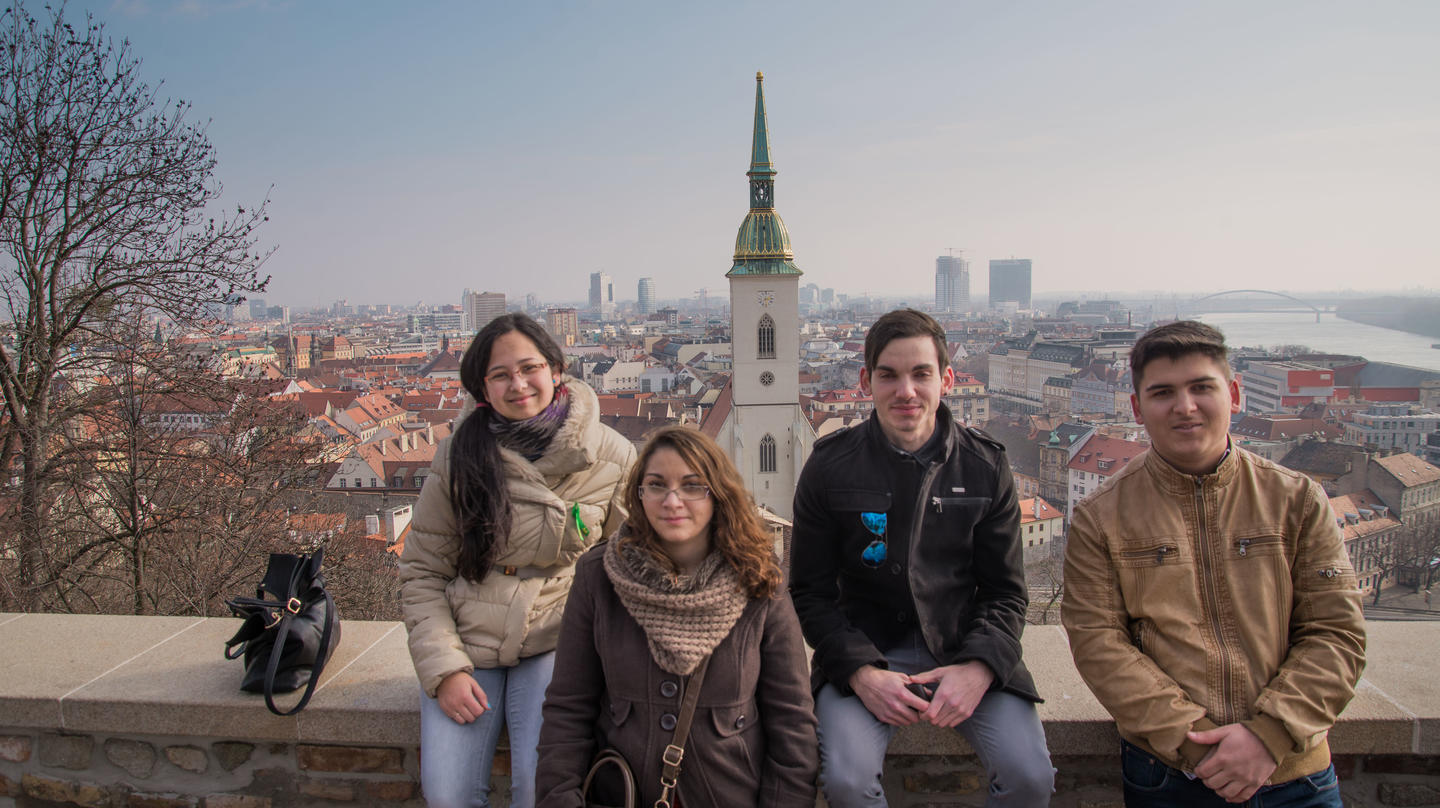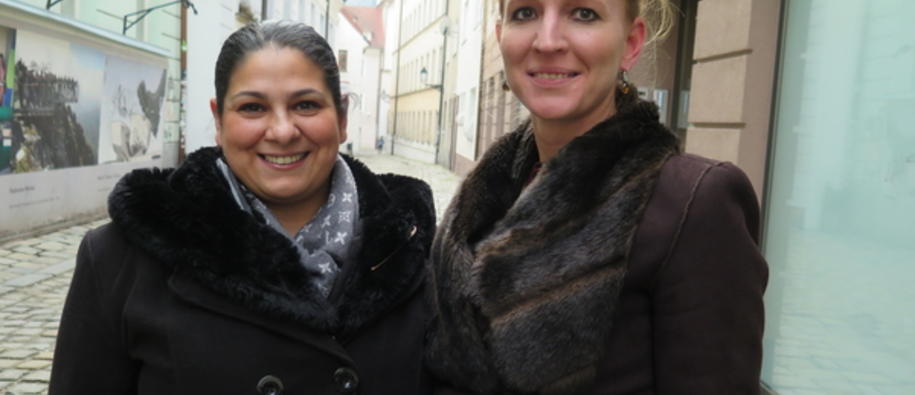The project is helping Roma students access third level education at the University of Economics (EUBA) in Slovakia's capital, Bratislava, by providing free courses, scholarships or extra coaching. Last year, four Roma students (pictured) from disadvantaged backgrounds received support. All successfully passed the EUBA admission exams in June and enrolled this September in the Faculty of Economic Informatics (Ján Lakatoš and Lucia Bílá) and the Faculty of Business Managment (Mária Sándorová and Tomáš Horváth).
“It was a great opportunity for me to get high quality preparation that my family would never have been able to afford,” said Ján Lakatoš
Slovakia is home to one of the densest concentrations of Roma communities in Europe, many settled in deprived ghettoes hampered by poverty, low literacy levels and discrimination. The gap in educational attainment between Roma and non-Roma is huge.
According to the EU Agency for Fundamental Rights, just 16% (compared to 90% of the Slovak population as a whole) of Roma have completed upper secondary education. The figures are even starker at tertiary level. Only 0.3% have finished university. Problems start early with Roma often penalised by poor pre-school opportunities. Many are inappropriately placed in 'special schools' for children with physical and mental disabilities, or ethnically segregated.
The project has received a grant of €85 000 from the EEA Grants NGO programme. It covers two main strands: firstly, mapping the educational needs and barriers experienced by Roma young people, and secondly, creating partnerships with schools and universities to provide incentives for Roma students to continue their education.
Breaking down barriers
The first local action plan was set up with the Trnava Higher Regional Unit and the city of Skalica to encourage Roma children of primary age to enrol in more academic secondary schools. Stereotypes set in from early childhood. Often even children who perform well academically at primary school are persuaded to study at vocational schools, tending to limit opportunities later in life. So far 20 children and their parents have been helped with selecting a secondary school with a good achievement record and in preparing admission tests. This has not always been easy, with parents sometimes reluctant for their children to attend schools outside the tight-knit communities where they live.
At tertiary level, a partnership has been established with the University of Economics in Bratislava (EUBA) to offer support and incentives to help Roma students study there. The University is highly ranked for graduate employment prospects. Until now, there were no Roma students in the EUBA.
“One of the biggest challenges is that expectations are often low. Roma families don’t always see the value of having higher education qualifications. And young people don’t want to move away from familiar surroundings. Financial issues can also be a significant barrier. This is why we've put in place the plans to get everyone on board, including parents,” explained Balážová, who is herself of Romani origin.
Reversing trends
The programme offers free coaching for entrance exams and advice with seeking scholarships in partnership with the Roma Educational Fund. A designated coordinator at the University is responsible for learning support and helping with practicalities such as finding a room. Any Roma student who has completed secondary school and passed the final exam is eligible for support.
“We’re putting in place temporary equalising measures, not quotas. It’s not a way of making it easier for Roma. It’s an effort to equalise opportunities for young people who have faced discrimination at all levels from the start,” said Balážová.
Equally important as the academic coaching has been the practical and psychological support to help the young people adjust to their new surroundings. As Jarmila Lajcakova, project leader, explained:
“We needed to show Roma students and their parents, generally from small, rural communities, the benefits of studying in Bratislava. The University here offers a better quality education with more opportunities for employment. But they need to feel comfortable. An important part of our job is helping them get over their fears about moving away. We have, for instance, picked our students up at the station and accompanied them to their dorm. We’ve organised tours of the University and the city and set up meetings with their teachers.”
While Lajcakova admits there will be many more challenges on the road ahead, she is ambitious for the future:
“We hope that the programme will have a positive impact not only on the lives of students that we have supported in the last year. Our ambition is to introduce a systemic change both in Skalica and at the University of Economics that could be replicated by other institutions. This is the only way that we can address the enormous ethnic inequalities in our country,” she concludes.
More
Slovak NGO Programme - Democracy and human rights
Centre for Research of Ethnicity and Culture
Project video (English subtitles)

